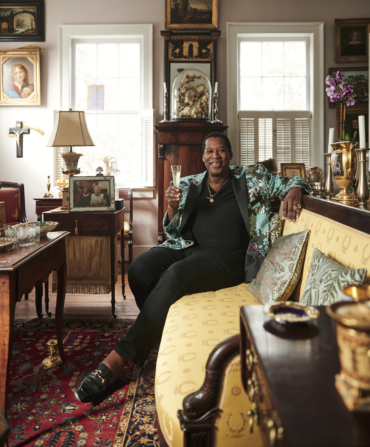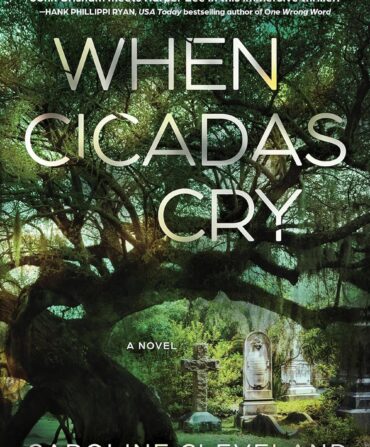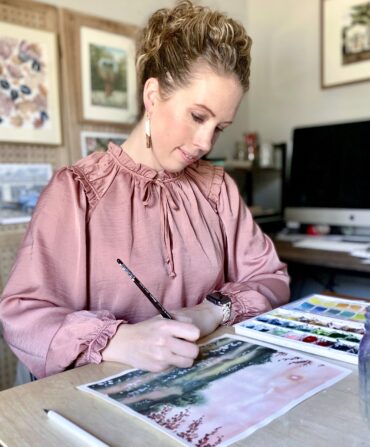If by chance you don’t recognize Ray McKinnon’s name, you’d surely know him by sight. For the past quarter-century, the Adel, Georgia, native has starred in roles as varied as Coach Cotton in The Blind Side, assistant U.S. attorney Lincoln Potter on FX’s Sons of Anarchy, and the Reverend Henry Weston Smith on HBO’s Deadwood. But when it comes to his work behind the camera, few filmmakers represent the South as often or as well.
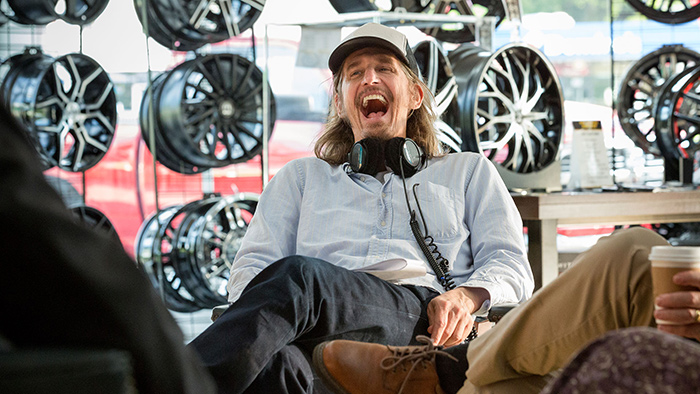
Photo: By Jackson Lee Davis/courtesy of Sundance TV
McKinnon on the Rectify set.
McKinnon’s track record of Southern success began in 2001 with The Accountant. He wrote, directed, and starred in the film, playing the title role of a man attempting to save family farm. McKinnon shot the movie—which won the Oscar for live action short film—in Georgia, the first in a line of productions that he would set in his home state. The latest chapter in that legacy begins its denouement this week, when the final season of Sundance TV’s Rectify premieres on Wednesday, October 26, at 10/9 central.
The trailer for Rectify’s final season.
The series tells the story of Daniel Holden, a Georgia man exonerated from death row after DNA evidence casts doubt on his conviction for the rape and murder of his high school girlfriend. The first three seasons (now streaming on Netflix) follow Daniel’s often-awkward integration back into the family he left nineteen years before—and into a small-town society still suspicious of him.
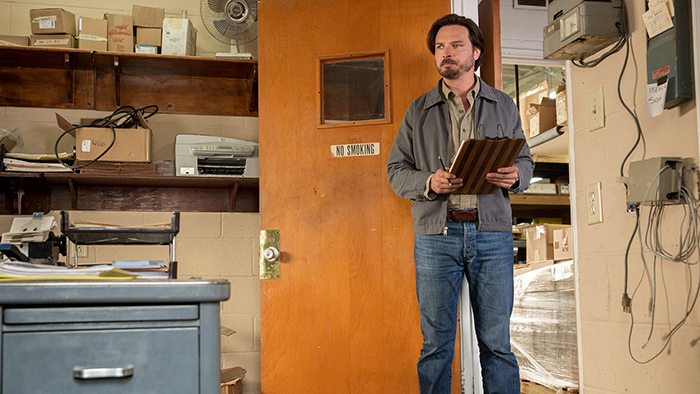
Aden Young plays Daniel Holden, Rectify’s protagonist.
As creator and showrunner, McKinnon has been consumed by Rectify since its debut in 2013. Here, he reflects on truthfulness in Southern storytelling and what’s next on his agenda (hint: even critically acclaimed filmmakers can’t wait to go home to see Mama).
Rectify primarily takes place in the fictional Georgia town of Paulie. If you’ve ever lived in a small town, you can’t help but see these characters and think, I know him, or, I know her. How did growing up in a small town guide your storytelling?
I was partly motivated to get into the screenwriting business because a lot of the artistic reflections of the South that’d I’d seen had just felt so—how can I say this nicely—inauthentic. Growing up, some of the stuff I saw was just so broad, it was like parody. It seemed like no Southern person had a sense of humor about themselves in those stories. And I grew up in a place where everybody had a sense of humor about themselves, about their culture. I just wanted to reflect more of what felt real to me. Rectify is a further exploration of what it’s like to be Southern. But beyond that—and it’s always beyond that for me—it’s what it’s like to be American, what it’s like to be of the world, what it’s like to be human. I hope that we’ve portrayed characters that are authentic to Southerners, but also authentic to our fellow humans.
What inspired this story?
In the late nineties and early two-thousands, DNA technology had started exonerating some people who were convicted of murder and rape. And these people started getting released, after anywhere from one year to twenty years or more in prison. You would see the press conferences, and that’s pretty much it. You would see them say, “I’m going to go home and stay in my old room for the first time in seventeen years” or “I’m going to go have a steak.” I just started daydreaming. The first night, you could imagine. But what’s it like the next day, when you walk out on the grass, or go down to your hometown square? Just that surreal experience, almost on a moment-to-moment basis—that was the genesis of writing the first episode of Rectify. It’s a story that had been in my belly for probably a decade before I wrote it.
Your writing is very lyrical—have certain Southern writers or books or films influenced your writing and storytelling?
Yes, of course. Everything from the old Burt Reynolds movies—where for once, the Southern guy was sometimes the smartest guy in the room, not the dumbest, and we pulled for him because we saw some of ourselves in him—to writers like Larry Brown and Harry Crews. Ms. O’Connor, particularly. You know, I remember reading Flannery O’Connor when I was older, and I’m like, I don’t know why they call this Southern Gothic, because it just feels like life to me. I remember as a kid seeing The Last Picture Show, and thinking, Now that’s a place that I recognize. It’s set in Texas. That felt like where I was from. And that really struck me.
As I got older, I had the delusional desire to tell stories with moving pictures. And I went to a theater in Los Angeles, the Laemmle, and sat down and watched this movie called Sling Blade. It felt so authentic. And I had two thoughts. First: Oh my God, a Southerner must have made this story! My second thought was: Did he take the only spot?
Your home state has served as a backdrop for your films, even before Georgia enacted its enticing film tax credits. And you’ve shot Rectify mostly in and around Griffin, Georgia. Why has it been important to you to do that?
I’ve seen movies that are supposed to be set in the South, and then you see something that looks suspiciously like Santa Clarita, California, and it takes me out of the moment. It un-suspends my disbelief. In this story, and some other stories that I’ve done, place was so important. But the incentives were a big reason why we were able to do that in Georgia. Beyond that, getting to go back to your home state and hopefully employ a few people and hang out with friends is not a bad way to make a living.
What are your plans after Rectify?
I’m going to see my mama [in Adel]. I’m very fortunate to still have her. I’m going to go hang out and wander a little bit around the country, maybe go do some traveling. And I’m going to go call some friends that haven’t heard from me in five years, and see if they’ll still talk to me.


